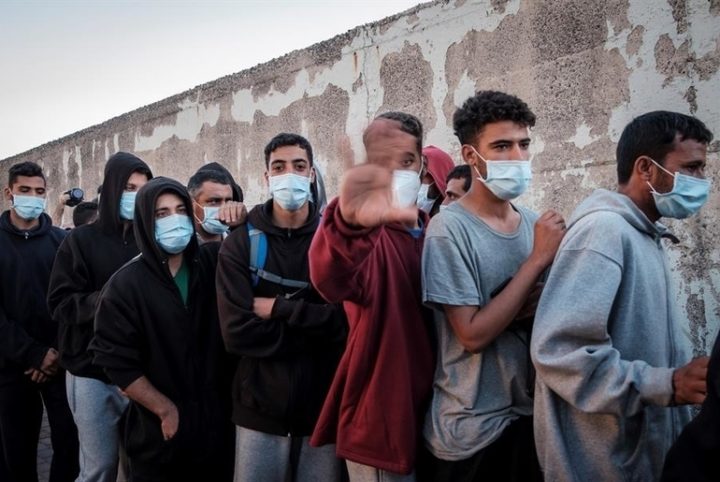A Spanish bishop has denounced the drama of migrants on the Canary Islands, urging that “we must treat them as people, help them and take them in”.
New arrivals left “without food, drink and destination” after being evicted by police from makeshift camp
The Bishop of Tenerife, Bernardo Álvarez, was speaking on Spanish radio November 18, the day after police evicted 225 new arrivals from the overcrowded Arguineguín port on the island of Gran Canaria.
Migrants have been protesting at what a judge called the “inhumane” conditions at an emergency camp at the port, in large part due to the fact that arrivals to the Canary Islands have increased 1,000% this year on 2019 numbers, to 16,700.
Police were acting on instructions from the Spanish national government, which is struggling to deal with the high number of migrants from north Africa, which is just 100km away from the Canary Islands.
But the migrants evicted from the camp Tuesday were left “without food, drink or [a] destination to go to”, one local government official denounced. Even a local police union warned that “migrants cannot be put on the street without any type of accommodation or food”.
Though local authorities later fleeted buses to take the abandoned migrants to the capital of Gran Canaria, Las Palmas, the eviction has exposed weaknesses in Spain’s migration policies on the Canary Islands that Bishop Álvarez demanded be addressed.
Large numbers of African migrants are arriving on the Canary Islands of Spain. Some 2,000 arrived last weekend alone. I asked Sophie Muller, the UNHCR representative for Spain, what she makes of Europe's approach to migration. @Refugees pic.twitter.com/OBgDps45Kd
— Terry Martin (@tmnewsstream) November 19, 2020
Danger of “anesthesia” setting in, but “love and respect for people must be above all else”
Speaking on the radio, Álvarez deplored that the evicted migrants “were just left there, left to their own devices”, for which reason he thanked the “many” local residents who came to their aid with water and snacks.
“This is the problem of immigration – that if people arrive here and no measures are taken, either to redistribute them [to other countries] on the continent or to return them to their countries, a kind of ghetto can be created, with the risk that there will be people on the streets with no place to take shelter; this generates social destabilisation”, the bishop warned.
Insisting that if migrants “have not committed any crime, they must be set free” and not kept in detention centres, Álvarez implored that “we must treat them as people, help them and take them in, because love and respect for people must be above all else”.
The Bishop of Tenerife also warned against the danger of “anethesia” setting in with regard to the plight of migrants. “When certain events continue over time, we come to adopt a position of indifference, of weariness, as if it were normal. We go about our business, we get used to it and our hearts harden”, he cautioned.
The prelate rejected the idea of a migrant “invasion, which means that they come to conquer us”, at the same time that he deplored the fearmongering and ‘fake news’ in some sectors of society with regard to new arrivals, and the adoption of attitudes “that are neither logical nor respectful”.
– “Let’s get down to work so that no one feels marginalised or spurned”
Along with fellow bishop in the Canary Islands José Mazuelos, Álvarez published a pastoral letter November 13 on the migrant drama.
Of the 16,700 new arrivals to the islands in the year to date, 5,500 have come just in the last two weeks, and at least 493 deaths have been recorded in 2020 on the route from Africa to the archipelago.
Those figures make the Canary Islands route even more perilous for migrants than that of better-known path through the central Mediterranean, from Libya to Malta and Italy.
In their pastoral letter, Mazuelos and Álvarez launched a heartfelt plea to Spanish politicians and citizens “to get down to work so that no one feels marginalised or spurned, but that everyone lives the welcome, attention and respect that they deserve as human beings”.










